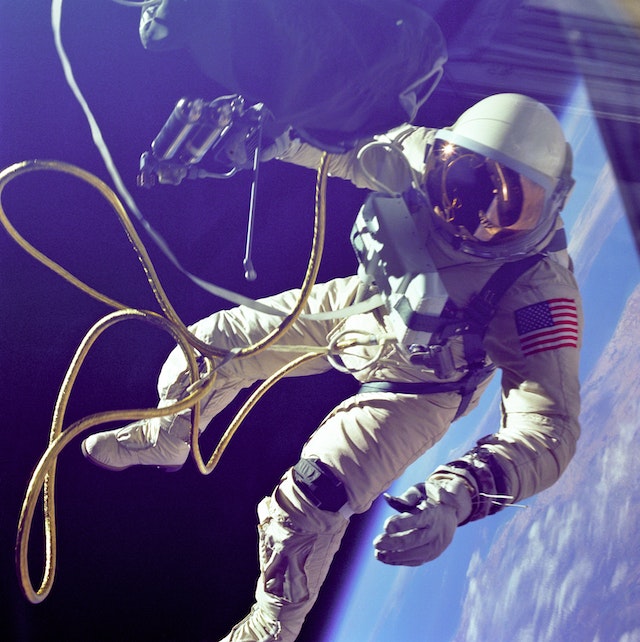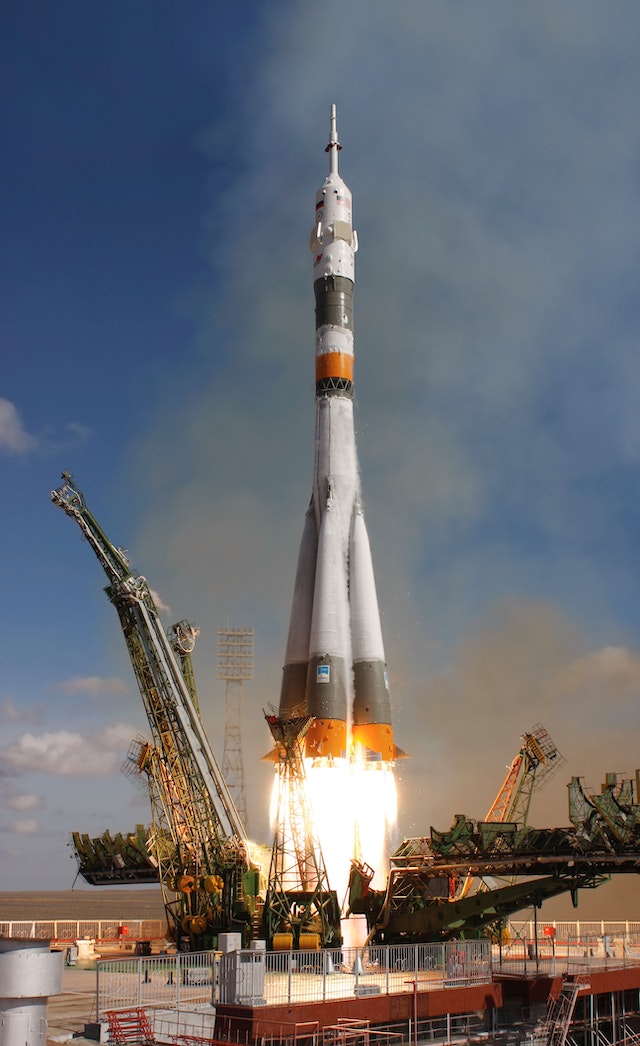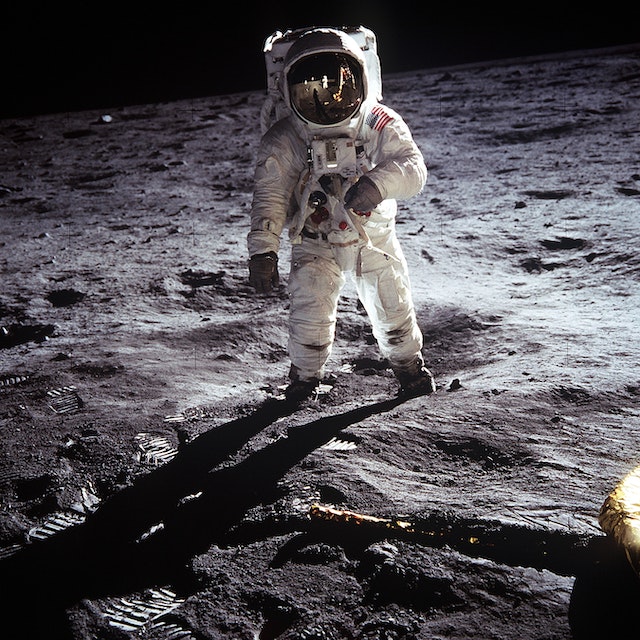The science fiction that envisioned space travel

Arthur C. Clarke never liked to keep his brilliance hidden. In order to hold his archives, also known as the "Clarkives," he purchased an English manor estate and referred to his office as his "ego chamber." And yet he steadfastly refused to claim any credit for any prophecies when it came to visualizing the future. He may have predicted the internet, 3D printers, and email, but these were not predicted technologies. He argued that these were extrapolations.
Putting terminology aside, it's safe to say that Clarke accomplished more than any other writer since HG Wells and Jules Verne to propel his thoughts into the future, bringing a sizable worldwide readership along for the always-exciting journey. He imagined a "personal transceiver" that could be carried about, which would allow communication with anyone on the planet and provide worldwide positioning so that being lost would no longer be an issue. He essentially described the mobile phone in that article, which was published in 1959. Only five years later, he was thinking about telecommuting and possibly telemedicine in an appearance on BBC TV's Horizon show. He also made predictions about reusable spaceships, internet banking, and the millennium bug.
Nevertheless, more than ten years after his passing, he is still best known for his science-fiction writing, particularly 2001: A Space Odyssey. The Sentinel, a short story created in 1948 for a BBC contest, served as the inspiration for the concept. Although it didn't win, he and Stanley Kubrick chose to concurrently adapt it into a novel and a screenplay in 1964. It is still the ultimate space movie. Additionally, the iPad, software that can read lips, and space stations were all predicted. There is more, albeit not all of it is as accurate — at least not yet. Space travel? We're approaching it. Animated inertia? Simply said, it's still quite experimental.
In the latter years of his life, Clarke listed 2001 as one of his proudest accomplishments. It was not the only one of his numerous fictions that was adept in prophesying. For instance, Prelude to Space, his first book, published in 1947, correctly predicted that the first moon rocket would launch in 1959. And a lengthy list of creative devices, ideas, and concepts that appear in the pages of his books, both big and short, starts with "automatic control automobiles" (driverless, we call them) and continues through the alphabet to zero "g," a term, if not a concept, that was invented by Clarke.
He was born in 1917, the son of a farmer in Somerset, when sonar, crossword puzzles, and bras were all yet quite novel innovations. His obsession with fossils began when his father gave him a card with a dinosaur on it as a child and continued throughout his adolescence with science fiction periodicals, astronomy (he built his own telescope out of cardboard tubes), and fossil hunting. His mother, who oversaw the neighborhood post office, taught him how to tap out Morse code messages using a crystal set.
Although he lost his father when he was just 13 years old, he would never lose his West Country vowels. Any funds that may have been utilized to send him to university by the time he graduated from high school a few years later were gone. He eventually settled in London in 1936 and began working as a public servant. He had joined the British Interplanetary Society at that time, a club that was enthusiastic about the concept of space travel long before it was feasible. He submitted short tales to fanzines and wrote for their newsletter.
He enlisted in the RAF during World War Two and quickly rose to the position of radar technology expert. Through his research, Flight Lt. Clarke was able to demonstrate the prospect of establishing an orbit 23,000 miles from Earth that would allow a satellite to remain stable and broadcast radio and television transmissions in 1945. Today, satellites do orbit in what is known as the Clarke orbit.
A fellowship to King's College, London after the war resulted in a first in math and physics. He published both fiction and non-fiction by the 1950s, and he was also recognized with honors. He would then become well-known for more than fifty years, receiving advice from the scientific community and spending his days responding to letters from all over the world. His tax-free Sri Lankan lifestyle was maintained by a team of valets and houseboys in his senior years, giving him the appearance of a remnant from a bygone age. Of course, there were also the pedophilia allegations in the tabloids.

Fantastic future
Oddly, his prediction of the future has rarely changed throughout time. In fact, several of his projections continue to look improbably far off. For instance, his 1979 novel The Fountains of Paradise, which included a "space elevator"—a planet-to-space transit device that would eliminate the need for rocket travel—was inspired by living in Sri Lanka. We humans were supposed to have colonized Mars and Venus by the year 1980, but neither has happened.
He spent a lot of time traveling since he was a desk-bound writer who was later rendered wheelchair-bound by post-polio syndrome. Years before the release of Star Trek, which he actually influenced, he had teleportation dreams. He foresaw both the far more successful Apollo moon landings and the (disastrous) Hotol project of the 1980s, which called for a spacecraft that could travel in 48 minutes from England to Australia. Additionally, he dreamed about devices that would carry heavy weights on air cushions and eventually purchased his own hovercraft. He previously said to the Daily Telegraph, "I thought the hovercraft would be really big. I even went out and bought one. That was a mistake. Hovercraft are wonderful over ice and excellent for military purposes, but they've not become universal in the way I thought they would."
So how did he accomplish it? "Trying to predict the future is a discouraging and hazardous occupation," he said in that 1964 episode of Horizon. He continued by saying that if a forecast seems even remotely plausible, technological advancement will make it appear "ridiculously conservative". However, even if someone were to be able to accurately foretell the future as it would play out, their prophecies will sound so ludicrous, so far-fetched, that everyone would laugh them to shame.

Even while many of them now seem admirably far-fetched, Clarke's own "extrapolations" often ground the incredible in everyday reality. For example, when he predicted interstellar travel outside of our solar system, he made sure to account for the cost of meals and in-flight entertainment. His incapacity to be anything other than completely engrossed in whatever that intrigued him is probably what gave rise to this style of thinking. He rented a flat on London's Gray's Inn Road with other science fiction authors in the beginning of his career, and they dubbed him "Ego" because of his ability to block off distractions. He would send reporters home with stacks of study papers until his reputation had grown to the point where he could be questioned. And whereas someone else could have taken up scuba diving as a hobby, Clarke became so immersed in it that he ultimately moved to Sri Lanka where he found ancient underwater sites, advocated for the preservation of coral reefs, and established a diving school.
He also grew up completely absorbed by his genre. According to him, the reality of the future can barely be envisaged ab initio by people who are unfamiliar with the fancies of the past, as he phrased it in his still-shocking collection of essays, Profiles of the Future (released in book form in 1962). This leads to Clarke's imagination, which is undoubtedly the true key to his extraordinary talent as a space-age seer. In order to do this, even while he reserved his more serious prophecy for his scientific writing, his science-fiction writing was very essential to the process because it allowed him to think far farther than what would seem imaginable.
He once asserted that practically all trustworthy prophets would be science fiction readers or authors, even though only 1% of science fiction readers would qualify as such. The only thing we know for sure about the future, he said in 1962, is that it will be absolutely fantastic. It's a well-known remark, but it's worth reiterating since Clarke chose the term "fantastic" to emphasize its fantastical character rather than its awe.
Who knows, perhaps our ordinary lives might more closely reflect the world Clarke imagined if we could all harness his inventive abilities.





























